Bio Citizen

How can citizen science contribute to biodiversity research and conservation ?
This article explores the role of citizen science in enhancing biodiversity research and conservation efforts. It highlights how involving the general public in scientific projects can boost data collection, raise environmental awareness, and support conservation initiatives. The article also provides examples of successful citizen science projects that have contributed significantly to understanding and protecting biodiversity.

How will the concept of citizen engagement change in future cities ?
This essay explores the future of citizen engagement in cities, influenced by technological advancements like AI and IoT, social media platforms, and demographic changes. Potential changes include increased participation through virtual town halls and online voting systems, greater transparency via open data and public dashboards, and more collaborative approaches such as co-creation workshops and community-led projects. The essay emphasizes the importance of adapting strategies for engaging with citizens to ensure vibrant, inclusive, and sustainable urban communities.

What are some examples of successful citizen-led climate initiatives ?
Successful citizen-led climate initiatives play a crucial role in addressing the global climate crisis. These initiatives are often driven by grassroots movements, community organizations, and individuals who are committed to taking action against climate change. Examples of successful citizen-led climate initiatives include renewable energy cooperatives, community gardens and urban farming projects, bike share programs, climate education and advocacy efforts, and waste reduction and recycling programs. These initiatives highlight the importance of collective action and individual responsibility in creating a more sustainable future for all.

How can cities encourage citizen participation in greening projects ?
This article discusses various strategies that cities can adopt to encourage citizen participation in greening projects, including education and awareness, volunteer opportunities, incentives and recognition, and collaboration with local organizations. By implementing these strategies, cities can create vibrant, sustainable environments that benefit both residents and the planet.
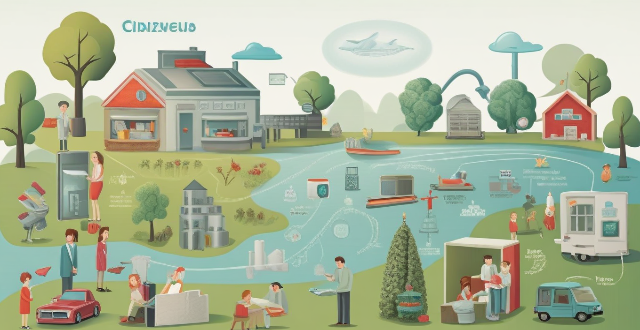
How can citizens participate in environmental monitoring initiatives ?
The text provides a detailed guide on how citizens can actively participate in environmental monitoring initiatives. It suggests joining local conservation groups, volunteering for citizen science projects, utilizing technology, educating and spreading awareness, advocating for policy changes, and collaborating with universities and research institutions as effective ways to contribute. These activities not only aid scientific research but also promote community involvement and responsibility towards the environment.
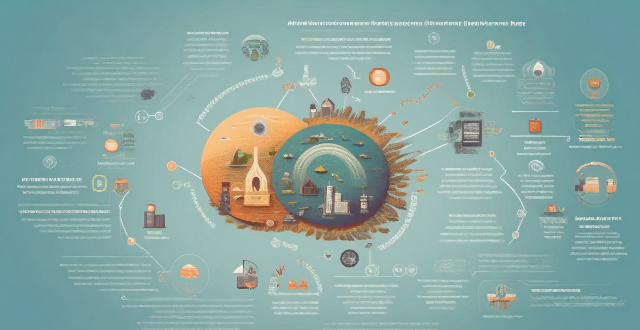
What role do education and awareness play in promoting citizen action on climate change ?
Education and awareness are crucial for promoting citizen action on climate change. They help individuals understand the science, develop skills, foster critical thinking, raise consciousness, mobilize public support, and promote behavioral change. Strategies for enhancing education and awareness include integrating climate change into curricula, community workshops, media campaigns, and partnerships with NGOs and corporations. Investing in education and awareness is essential for creating a more resilient and equitable future.
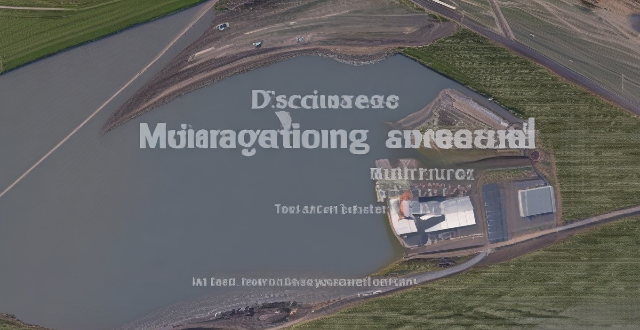
What are some emerging trends in the field of energy storage materials research ?
The text discusses the latest trends in energy storage materials research, focusing on solid-state batteries, flow batteries, metal-air batteries, supercapacitors, redox flow batteries, hybrid energy storage systems, nanostructured materials, smart grid integration, thermal energy storage, and organic/bio-based materials. Each section provides a brief overview of the technology's advantages and current research challenges.

How much does it cost to obtain a tourist visa ?
This detailed guide outlines the cost implications and requirements for obtaining a tourist visa to the People's Republic of China as of July 2024, using the process in the United States as an example. The guide covers visa types, required documents, additional requirements, cost implications, and the application procedure. It also highlights recent simplifications in the document requirements and emphasizes the importance of meeting all specified requirements and being prepared for associated costs.

How do urban greening projects affect biodiversity in cities ?
Urban greening projects, which aim to increase the amount of vegetation within cities, can have significant effects on urban biodiversity. These projects typically involve planting trees, creating parks and green spaces, and restoring natural habitats. Here are some ways in which these initiatives can influence the variety of species living in urban areas: - Increased Habitat Availability: By adding more greenery, urban greening provides additional habitats for a wide range of organisms. This includes plants, insects, birds, and small mammals that can thrive in these newly created environments. - Mitigation of Urban Heat Islands: Vegetation helps reduce the urban heat island effect by providing shade and releasing water through transpiration, creating cooler microclimates that are more suitable for certain species. - Enhanced Food Sources: Flowering plants attract pollinators like bees and butterflies, supporting their populations and contributing to the health of the overall ecosystem. - Increased Water Quality and Availability: Green roofs and rain gardens help manage stormwater runoff, reducing pollution and providing water sources for urban wildlife. - Promotion of Biodiversity through Education and Awareness: Parks and green spaces serve as outdoor classrooms, offering opportunities for education about ecology and conservation. While urban greening projects offer numerous benefits for biodiversity, they also present challenges such as potential introduction of invasive species, maintenance requirements, and resource allocation trade-offs with other land uses.

How can governments encourage and improve financial literacy among citizens ?
Governments can encourage financial literacy by implementing education programs, offering accessible financial services, and enforcing consumer protection regulations. This will help citizens make informed decisions about their money, investments, and debts.

How can governments promote resource-efficient utilization among their citizens ?
Governments can promote resource-efficient utilization among citizens through legislation, education, incentives, research, public sector leadership, and collaboration with stakeholders.

What are the latest trends and advancements in climate data analysis technology ?
Latest Trends and Advancements in Climate Data Analysis Technology Climate data analysis has become increasingly important in recent years as scientists work to understand the impact of climate change on our planet. With advancements in technology, new methods for analyzing this data have emerged, leading to a better understanding of the complexities of the climate system. Here are some of the latest trends and advancements in climate data analysis technology: Artificial Intelligence and Machine Learning: One of the most significant developments in climate data analysis is the use of artificial intelligence (AI) and machine learning (ML). These technologies can process vast amounts of data quickly and accurately, allowing researchers to identify patterns and trends that would be difficult or impossible to detect manually. For example, AI and ML algorithms can analyze satellite images to track changes in ice coverage or monitor deforestation rates. Big Data Analytics: The volume of climate data available today is enormous, and big data analytics tools are essential for managing and interpreting this information. These tools can help researchers identify correlations between different variables, such as temperature changes and extreme weather events. They can also be used to create predictive models that forecast future climate conditions based on current trends. Cloud Computing and Remote Sensing: Cloud computing has made it possible for researchers to access and share large datasets from anywhere in the world. This has led to increased collaboration among scientists working on climate-related projects. Remote sensing technologies, such as drones and satellites, are also being used more frequently to collect climate data. These tools can provide real-time information about changes in the environment, allowing researchers to respond quickly to emerging issues. Blockchain Technology: Blockchain technology is another promising development in climate data analysis. By using a distributed ledger system, blockchain can ensure that climate data is secure, transparent, and immutable. This means that once data is recorded on the blockchain, it cannot be altered or deleted, ensuring its integrity over time. Additionally, blockchain can facilitate the sharing of climate data across organizations and countries without compromising security or privacy concerns. Citizen Science and Crowdsourcing: Citizen science and crowdsourcing initiatives have become increasingly popular ways to gather climate data. These programs involve members of the public in collecting and contributing data about their local environments. By harnessing the power of crowdsourcing, researchers can gather vast amounts of data from diverse locations around the world, providing valuable insights into global climate patterns and trends.

What are the most effective ways to engage young people in climate science communication ?
Engaging young people in climate science communication is crucial for creating a sustainable future. Here are some effective ways to do so: 1. Use interactive and engaging methods such as gaming and simulations, visualization tools, and interactive workshops to make complex climate concepts more accessible and fun to learn. 2. Involve young people in the process by involving them in participatory research, citizen science projects, and advocacy and activism to increase their ownership and interest in climate science. 3. Make it relevant to their lives by providing localized information, discussing career opportunities, and sharing personal stories to help young people understand the impact of climate change on their lives and communities. By using these strategies, we can inspire the next generation of climate leaders and create a more sustainable future for all.

How do celebrities manage their online presence and reputation on social media ?
Celebrities manage their online presence and reputation on social media by hiring a social media manager, maintaining consistency across platforms, engaging with fans, promoting positive messages, handling criticism gracefully, and monitoring their image. These strategies help them maintain a positive online presence while connecting with fans and promoting their work effectively.

What strategies can be employed to mitigate the negative effects of urbanization on the environment ?
### Strategies to Counteract Urbanization's Environmental Impact Urbanization presents significant environmental challenges, including pollution, deforestation, and biodiversity loss. However, these issues can be mitigated through various strategies: 1. **Sustainable Transport**: Improve public transit, invest in non-motorized transport infrastructure, and encourage electric vehicles. 2. **Green Building Practices**: Implement energy-efficient designs, use green roofs/walls, and promote recycled materials. 3. **Waste Management**: Adopt a reduce-reuse-recycle approach, compost organic waste, and manage e-waste. 4. **Water Conservation**: Encourage rainwater harvesting, use water-efficient appliances, and manage stormwater effectively. 5. **Urban Green Spaces**: Develop parks, urban forestry, and ecological corridors to support biodiversity and improve air quality. 6. **Energy Efficiency**: Conduct energy audits, promote renewable energy sources, and implement smart grid technology. 7. **Environmental Education**: Organize community workshops, integrate education into school curricula, and engage the public in citizen science projects. Collaboration among governments, businesses, and citizens is crucial for creating sustainable urban environments.

What are some recent celebrity charity events ?
Recent Celebrity Charity Events 1. The Global Citizen Live Event, hosted by Hugh Jackman and Deborra-lee Furness, aimed to end extreme poverty by 2030 through performances by various artists and calls to action from activists. 2. Hand in Hand: A Benefit For Hurricane Relief, organized in response to hurricanes Harvey, Irma, and Maria, raised over $44 million for relief efforts through a star-studded concert featuring Oprah Winfrey, Beyoncé, George Strait, and more. 3. One Love Manchester, held by Ariana Grande after a terrorist attack at her concert, raised funds for the victims' families and showcased the resilience and solidarity of Manchester through performances by Miley Cyrus, Pharrell Williams, Katy Perry, and others.

How can technology be used to monitor and predict climate conflicts ?
Climate conflicts, exacerbated by competition for natural resources, have significant impacts. Technology is crucial in monitoring and predicting these conflicts through satellite imagery, data analytics, GIS, social media monitoring, mobile technology, and collaboration platforms. These tools help in early warning, predictive modeling, mapping disputes, sentiment analysis, citizen reporting, information dissemination, and multi-sector coordination.

What policies can promote sustainable urban development ?
Sustainable urban development is crucial for creating livable, healthy, and prosperous cities. Here are some policies that can promote sustainable urban development: 1. Green Infrastructure: Promote green spaces, implement green roofs and walls, develop urban agriculture. 2. Energy Efficiency and Renewable Energy: Encourage energy-efficient buildings, promote renewable energy sources, implement smart grid technology. 3. Transportation: Improve public transportation, encourage active transportation, promote carpooling and ridesharing. 4. Waste Management: Implement recycling programs, encourage composting, promote zero waste initiatives. 5. Water Management: Implement water conservation measures, manage stormwater runoff, protect natural water resources. 6. Community Engagement: Encourage citizen participation, support local businesses, foster a sense of community.

How do celebrities establish and maintain a successful personal brand ?
Celebrities establish and maintain a successful personal brand by defining their brand persona, building a strong online presence, being consistent in messaging and imagery, networking and collaborating with others, staying true to themselves, and continuously learning and evolving. A strong personal brand helps celebrities stand out in their industry and build a loyal fan base.
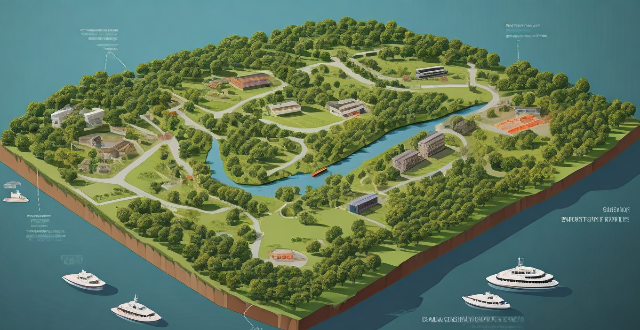
How can ecological protection areas be integrated with other conservation strategies ?
Integrating EPAs with other conservation strategies is crucial for their long-term viability and effectiveness. This involves developing comprehensive landscape approaches, incorporating community-based conservation, enhancing legal frameworks, promoting sustainable development practices, conducting regular research and monitoring, and implementing education and awareness programs. These measures ensure that conservation efforts extend beyond the boundaries of EPAs and into the broader ecosystem, involving local communities, addressing human activities, and fostering a culture of environmental stewardship.
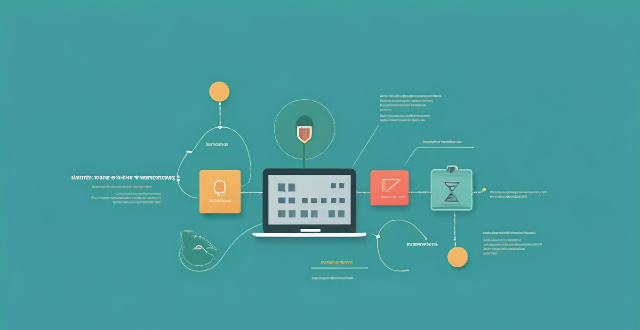
How can public transportation be made more affordable for low-income individuals and families ?
This article discusses strategies to make public transportation more affordable for low-income individuals and families, including discounted fares for senior citizens, students, and low-income households; integrated ticketing systems with multimodal tickets and time-based pricing; community partnerships with employers and nonprofit organizations; and government funding and subsidies from federal, local, and private sector sources. The conclusion emphasizes the importance of collaboration between policymakers, transit agencies, and community organizations in creating a comprehensive approach to improve access to essential services and opportunities for these populations.

What are the most effective strategies for sustainable urban planning in a changing climate ?
Effective Strategies for Sustainable Urban Planning in a Changing Climate 1. Green Infrastructure: Incorporating features like urban forests, rain gardens, and green roofs to mitigate the effects of climate change. 2. Energy Efficiency and Renewable Energy: Reducing energy consumption and shifting towards renewable sources through building codes, retrofitting programs, and public transportation. 3. Water Management: Managing excess water during floods and conserving water during droughts with strategies like rainwater harvesting, permeable pavements, and water recycling. 4. Resilient Infrastructure: Ensuring cities can withstand extreme weather events by elevating buildings, designing effective stormwater systems, and implementing thermal comfort initiatives. 5. Community Engagement and Education: Encouraging resident involvement and education through workshops, citizen science programs, and promoting urban agriculture.

What is the impact of Brexit on UK immigration policies ?
Brexit has had a significant impact on UK immigration policies, including the end of free movement for EU citizens, the introduction of a points-based immigration system, a settled status scheme for EU citizens, changes in student visa policies, and increased scrutiny of immigration applications. These changes reflect the UK government's desire to regain control over its borders and shape its immigration policies according to national interests.
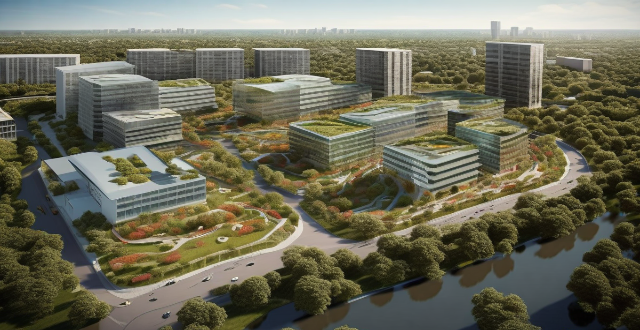
How can urban planning contribute to biodiversity conservation ?
Urban planning is crucial for managing urban growth and ensuring sustainable development. One area where it can make a significant impact is in biodiversity conservation, which is essential for maintaining ecosystem services such as pollination and water purification. Strategies for incorporating biodiversity conservation into urban planning include creating green spaces and parks, promoting sustainable transportation, implementing effective water management practices, encouraging waste reduction and recycling programs, and engaging communities in conservation efforts. By adopting these strategies, cities can become more livable while supporting both human well-being and biodiversity conservation.

What measures can be taken to reduce income inequality in low-income countries ?
The text discusses measures to reduce income inequality in low-income countries. It covers topics such as education and training, economic policies, labor market interventions, social safety nets, land reforms, governance and anti-corruption measures, and international cooperation. The measures include improving access to quality education, implementing progressive tax systems, creating minimum wage laws, developing effective social assistance programs, implementing land reform policies, strengthening institutional capacity to combat corruption, and seeking foreign direct investment that aligns with sustainable development goals.

How can governments encourage citizens to adopt energy-saving measures ?
Governments can encourage citizens to adopt energy-saving measures through various strategies such as education and awareness programs, incentives and subsidies, regulations and standards, and research and development. These efforts include public education campaigns, workshops and training programs, financial incentives, subsidies for renewable energy, building codes and energy efficiency regulations, funding for research, and support for clean energy startups. By employing these strategies, governments can effectively motivate citizens to save energy, contributing to the global effort to combat climate change and ensure sustainable development.

What role do citizens play in shaping environmental legislation ?
The text discusses the significant role that citizens play in shaping environmental legislation. It outlines various ways in which they can influence such legislation, including advocacy and public awareness, voting and elections, lobbying and policy influence, litigation and legal action, and grassroots movements and direct action. The text emphasizes that by working together, citizens can help create a more sustainable future for themselves and future generations.

How can we conserve and protect biodiversity in our local communities ?
The text discusses the importance of biodiversity and provides various ways to conserve and protect it in local communities. It suggests creating awareness through education, using media platforms, practicing sustainable living by reducing waste and conserving energy, protecting habitats by preserving natural areas and controlling invasive species, supporting local conservation efforts through volunteering and advocating for policies, and promoting eco-friendly practices in businesses. The goal is to contribute to a healthier planet by taking small actions towards biodiversity conservation.
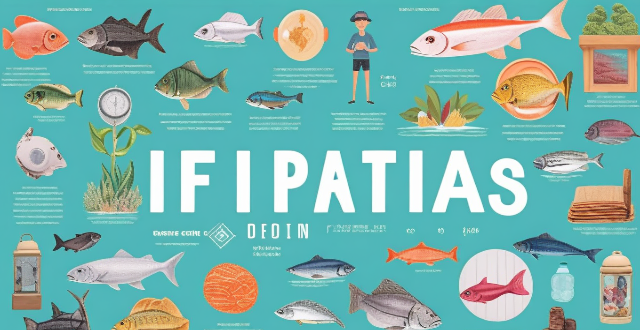
What are the economic benefits of biodiversity ?
Biodiversity plays a significant role in the global economy by providing various economic benefits. These include increased resilience to climate change, support for sustainable agriculture, tourism revenue, pharmaceutical and medical research opportunities, ecosystem services, fisheries and food security, cultural and aesthetic value, innovation and education, risk management and insurance, and trade and livelihoods. Preserving biodiversity is crucial for maintaining these economic benefits across different sectors.